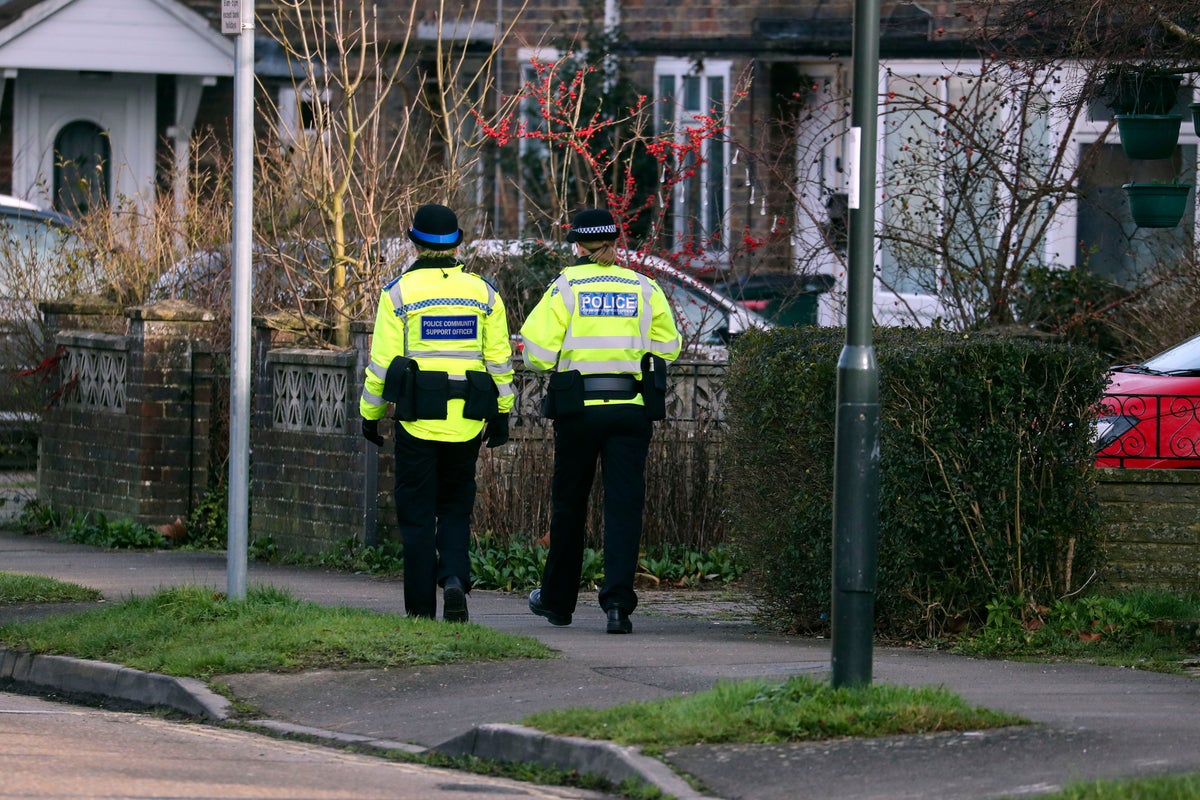
An “unacceptably low” number of crimes are being solved, a watchdog has said as official figures show only 11 per cent of offences see justice.
HM Inspectorate of Constabulary ordered police forces to “quickly get a grip on this issue” following a series of scandals that have battered public confidence.
It came as separate polling showed more British people believe the current standard of policing is bad than good, and only a fifth expect the situation to improve in the coming months.
A report issued on Friday said officers were closing cases without proper investigations, leaving criminals at large and putting victims at further risk.
“We remain very concerned about the unacceptably low number of crimes that are solved,” the watchdog said.
“There needs to be a concerted effort across all forces to understand the issue and work to achieve better outcomes for victims. If all forces don’t quickly get a grip on this issue, the public’s confidence in policing will be further eroded.”
An analysis of Home Office figures for 2021-22 in England and Wales showed that only 11 per cent of offences resulted in someone being prosecuted, fined or “brought to justice” in another way.
Suspects were not identified in 38 per cent of cases, while a further 15 per cent ended with the marker “evidential difficulties”, even where a suspect had been identified and victims wanted action, and police closed 29 per cent of cases under the category “victim does not support action”.
The inspectorate found that the rate of crime-solving had been falling since 2015, reflecting a “decline in performance” by police.
It said cases were being marked as “no suspect identified’ where there were still lines of enquiry, and that victims were not always told what had happened.
“This can have real implications for victims’ trust and confidence in policing and their willingness to report future offences,” the report warned. “It can lead to missed opportunities to bring offenders to justice, which can put the public at risk.”
Andy Cooke said the failure to catch offenders could put the public at risk— (PA)
Polling by Ipsos suggested that public opinion is divided on the current standard of policing in Britain, with 36 per cent of people saying it was bad, 31 per cent good and 29 per cent neither.
But only a fifth of people said they expected standards to improve in the next year, while a quarter thought the situation would worsen and the remainder anticipated no change.
Half of Britons said government spending on the police should be increased, while many wanted them to focus more on sexual offences and domestic abuse.
Ministers have hailed the £3.6bn spent on Boris Johnson’s programme to recruit 20,000 extra police officers in three years, which was completed in April, but the inspectorate said the influx of inexperienced officers had “created problems”.
It said an estimated 38 per cent of officers in England and Wales have now been serving for less than five years, and one force reported that half of those responding to incidents were “student officers”.
“We found reports of rape being allocated to untrained and inexperienced investigators, and domestic abuse investigations being allocated to response officers whose main responsibility is to attend calls,” the report added.
“All forces need to make sure investigations are allocated to the most appropriate people and that they understand training needs and are working to address them.”
The speed of the government’s recruitment programme and strict targets for individual forces generated concerns about the quality of new officers and vetting, following a string of scandals involving predatory and criminal police.
The inspectorate said forces were finding it increasingly difficult to attract recruits, while “too many officers and staff” are resigning voluntarily in their first years of service.
High training costs mean that policing loses £83,000 per officer if they leave within 12 months, and £138,000 if they depart in two years, and the watchdog said police forces must do more to keep officers.
HM Chief Inspector of Constabulary Andy Cooke, said: “The public are still being let down too often by policing, and there are several improvements that forces need to make.
“The public’s trust and confidence in the police are at an all-time low, so it is vital that forces take heed of our findings and work quickly to rectify the issues highlighted.”
Ipsos interviewed a representative sample of 2,178 adults in Britain between 9 and 12 June, and the data was weighted to reflect the population.







